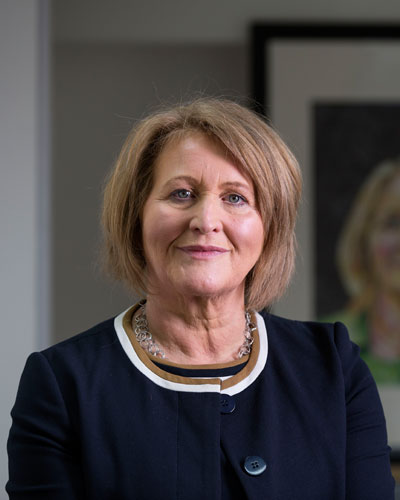Our children are living through unprecedented times – routines have been disrupted, new strains will be put on families. Many children will be anxious and confused. Protecting them from the inevitable social and financial consequences of the outbreak must remain a top priority argues Anne Longfield, Children’s Commissioner for England.

It was reasonable and necessary for the government to seek emergency powers through the Coronavirus Act to protect public health. However, I am concerned that some of the legal protections for the most vulnerable children may be overturned as a result of the Act, and I believe additional safeguards and close scrutiny is required to ensure that children’s rights and best interests are upheld.
For children with disabilities and additional care needs, a group who may be most negatively affected, local authorities no longer have to comply with their duties under the Care Act to asses children’s needs for continuing care after the age of 18. The Coronavirus Act also removes the duty under the Children Act to provide support for young people who may need continuing care after 18 if their assessments have not been completed under the Care Act.
Without assessment of their needs and clear support plans in place, I am concerned that a group of children turning 18 in the next few months are likely to be facing a very precarious future. Without this help in place, not only may their own health be in danger, but they may also pose a public health risk if they are not supported to self-isolate or stay at home.
The Coronavirus Act also grants powers to the Secretary of State for Education to relax duties on Local Authorities to provide appropriate education and health care to children with additional needs, to admit those children to their chosen school, and review their plans annually. Under the legislation, Local Authorities would then only have to make ‘reasonable endeavours’ to meet those duties. It is important to know what those reasonable endeavours include, and how they will be monitored. It is also important that we are made aware when the Secretary of State issues a notice to use those powers.
Children who are carers are already face huge challenges. However, the Coronavirus Act removes the duty to assess the needs of young carers. We know that around 100,000 children are caring for family members, and this is likely to increase in the coming months. In doing so they will be providing immense support to health and care services. So it is important that they are able to continue to receive assessments to identify what help they need. Clear guidance is needed for Local Authorities, informing them that their duties to young carers and children with additional needs under the Care Act and Children Act may only be ignored as a last resort, and for monitoring to be introduced of the numbers of children and young people whose need for an assessment could not be met.
Our NHS workers are a daily inspiration, and I appreciate the need to reduce the burden on them, however granting powers to detain a child under the Mental Health Act on the approval of one doctor, rather than the usual two, could increase the risk of children being inappropriately detained. One thousand children were detained under the Mental Health Act last year, and it is vital that we ensure robust protections for them continue. I would like there to be an expectation that children should be prioritised when it comes to having a second doctor, and it would be helpful if the number of detentions authorised by one doctor is recorded.
The risk of inappropriate detention is compounded as CQC has suspended their routine inspections, advocacy services are going online, and Mental Health Act tribunals may be conducted without doctors or lay members. I would like to see children prioritised for full tribunals, and to be well supported to access remote advocacy services.
Although thankfully children seem to be less affected by Covid-19, there is still a risk – particularly to those children with additional health needs. While I appreciate the proportionality of removing the requirement for inquests to be held with a jury, we need confirmation that any deaths of children from Covid-19 – including those in institutional settings, such as children’s homes, young offenders institutions and mental health wards – that appropriate investigations into these will still take place, to understand what measures could have prevented them.
The Coronavirus Act also introduces new powers to detain children on public health grounds, for a period of up to fourteen days. I agree that this may be necessary in order to prevent the further spread of disease, however I remain concerned that the Act allows this to be done without consent from someone with responsibility for the child, and only requires ‘reasonable steps’ to be taken to inform someone with responsibility of the detention. I would like to see protections for children in these circumstances strengthened, with timescales in place for when those with responsibility will be informed about a child’s detention. I would also like data to be made available on all instances where a child is detained using these powers.
The regulatory changes made in the Coronavirus Act require easements of duties to occur only when a decision has been taken that workforce is significantly depleted, and that this decision should involve the Principal Social Worker. I would like it made clearer that the significant changes set out should only be made under the same circumstances, and should be reviewed regularly so that there is less risk that this leads to long-term reductions in child protection duties.
At the same time, the DfE’s guidance on children’s social care, published at the beginning of April, seems to assume that certain statutory duties will not be met during this time, although the Coronavirus Act did not contain any easements of duties under the Children Act. I am concerned that relaxing of duties to children is not subject to any legislative scrutiny – I believe these changes are likely to be as significant as those set out in the Coronavirus Act and should be set out in law. At a minimum I would like to see the guidance set out similar protections as the guidance accompanying the Coronavirus Act does.
Protecting vulnerable children must be one of the top priorities for tackling the consequences of the virus. Schools, community health services and other services should be co-ordinating information to identify children who may be at risk without additional support and establishing clear plans for how families will be helped to care for these children. I would also like to see an army of volunteers, made up of former social workers and those who are already cleared to work with children, helping to keep an eye on those children who were already vulnerable before the coronavirus outbreak and will be even more so now.
The last few weeks has shown some of the best of our civil society – it reinforces the need for us to stick together as a nation, and also reminds us of the importance of looking out for and protecting the most vulnerable. The government is dealing with an unprecedented national emergency, and it is vital that the rights of children are considered and protected as we continue to tackle this crisis.
Further information:








